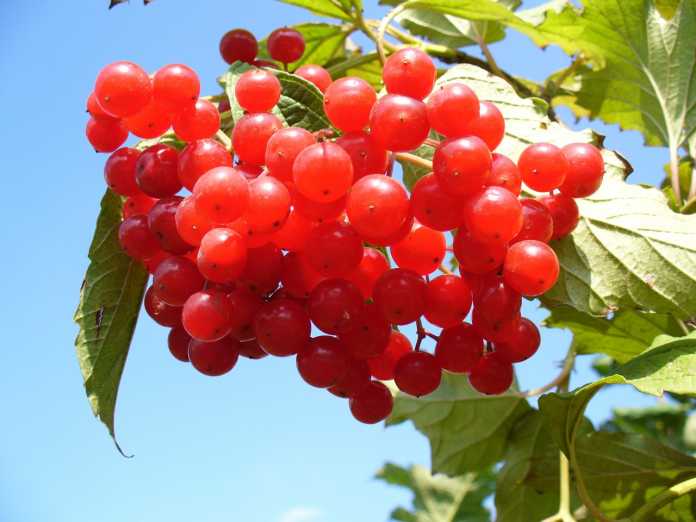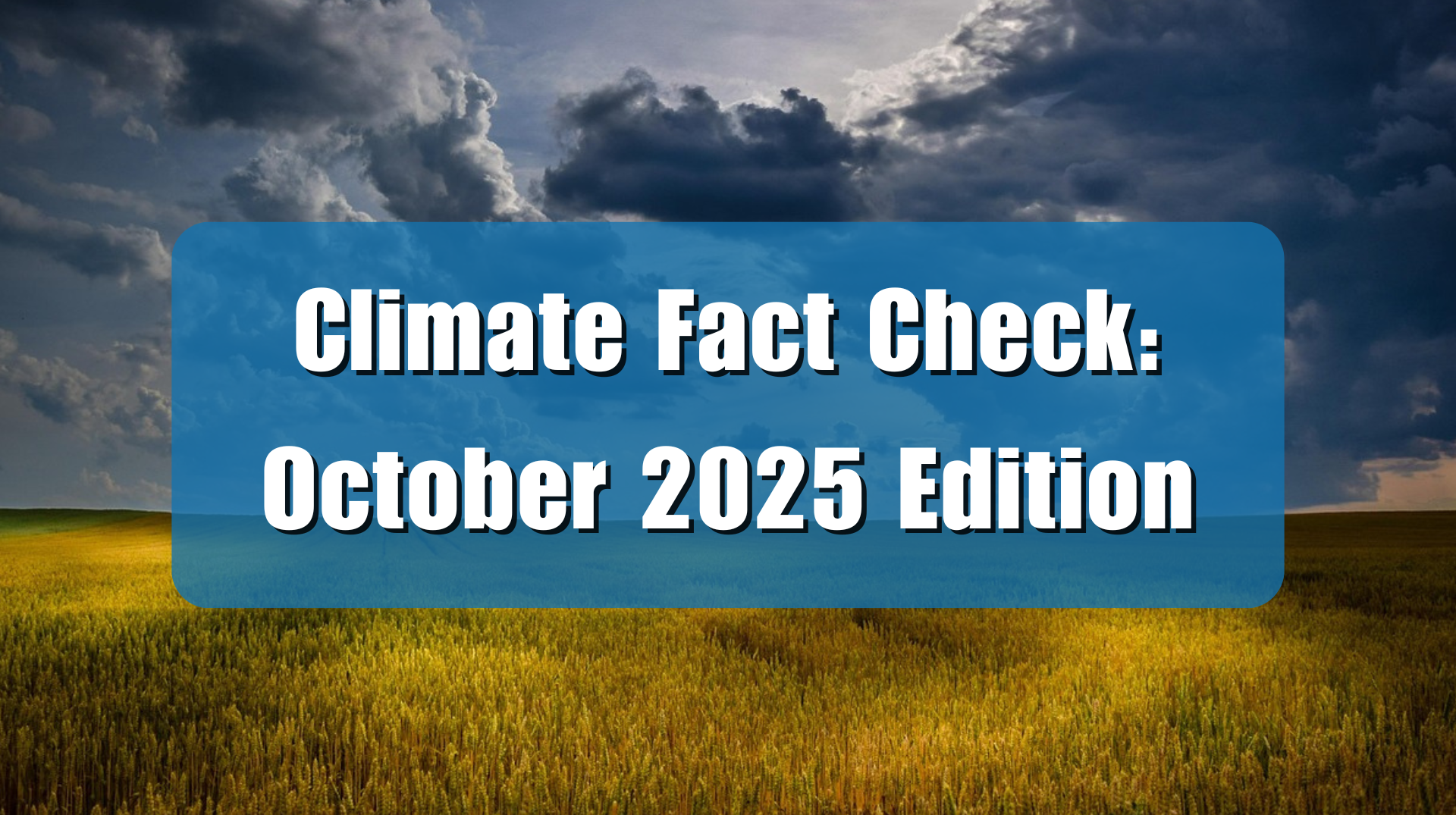Rolling Stone magazine is attempting to turn a climate change success story into another fictitious crisis, identifying 11 foods allegedly being harmed by global warming. In reality, every crop discussed by Rolling Stone is experiencing higher yields as more atmospheric carbon dioxide and warmer temperatures create ideal growing conditions. Of the two non-plant species Rolling Stone discusses, sardines and scallops, only sardines have experienced a significant decline. The National Oceanic and Atmospheric Administration’s National Marine Fisheries Service (NMFS) reports this decline is due to overfishing, not climate change.
The Rolling Stone article, published today, is titled, “11 Foods That Are Already Being Impacted by the Climate Crisis.” According to the article, “We’re already seeing changes. Fruit trees are struggling to bloom after warmer winters; cranberries are being scalded by heat in the bogs they’ve grown in for centuries; in Asia, rice crops are being flooded with saltwater. And as the ocean becomes warmer and more acidic, the sea life we depend on is either moving to different waters or being decimated.”
The above narrative is completely false. Almost every food Rolling Stone claims is being harmed by global warming, is instead benefiting from warming.
Rolling Stone claims wheat, one of the world’s staple food crops, is being harmed by climate change. Nothing could be further from the truth. Data from the U.N. Food and Agriculture Agency show wheat production has grown dramatically during the recent period of modest warming. Despite the normal ups and downs of yearly crop production, wheat production has set new records 25 times since 1961, when FAO data tracking began. Between 1961 and 2019, global wheat production has increased by more than 244 percent.
Sardines, referred to as herring when they are older, suffered a sharp decline in recent years. This resulted in the NMFS closing the U.S. Pacific commercial sardine fishery. The NMFS reports “excessive fishing rates [are] to blame for severity of pacific sardine crash,” not climate change. The Atlantic herring population’s size is also below the NMFS’s target population, but, under careful management, it is recovering from lows caused by overfishing. The commercial harvest of herring stocks are regulated but not closed. Contrary to Rolling Stone’s assertion, climate change should tend to benefit sardine populations because it boosts plankton production, which is the main food source for sardines.
Rolling Stone says almond production is being harmed by modest warming, yet since 1961 new records for almond production were set in 18 separate years. The highest production ever recorded came in 2019. Almond production increased by more than 362 percent between 1961 and 2019.
Rolling Stone says chick pea production is being harmed by global warming, yet since 1961 new records for chick pea production have been set 12 times. The most recent record for chick pea production was set in 2018. Chick pea production increased by approximately 86 percent between 1961 and 2019.
Rolling Stone asserts wine production is being harmed by global warming. Wine means grapes, and FAO data show grape production has increased dramatically amidst modest warming. Grape production set new records 10 times since 1961, most recently in 2018. Overall grape production increased approximately 80 percent between 1961 and 2019. Indeed, the areas consistently producing wine have expanded rather than declined, as Rolling Stone implies should have occurred.
Rolling Stone says cranberry production is being harmed by global warming, yet cranberries have been among the crops to benefit the most from higher carbon dioxide levels. Since 1961 new records for cranberry production have been set 30 times. Overall cranberry production increased by nearly 1,119 percent between 1961 and 2019.
Rolling Stone claims ocean acidification is harming the world’s scallops. Research published by the CO2 Coalition refutes this claim. Data prove oceans are in no danger of becoming acidic. As meteorologist Anthony Watts writes in Climate at a Glance: Ocean Acidification, “A pH of 7 is considered neutral, with anything below 7 considered acidic. Ocean pH averages 8.1, which is alkaline rather than acidic.”
Scallop populations vary by region and from year to year but the NMFS lists Atlantic sea scallop population as being “above target population level.” Although some scallop populations have declined temporarily in recent years, that is due to local conditions, like the overfishing of sharks which prey on species which prey on scallops, or pollution. Ocean acidification due to climate change is not a factor.
Rolling Stone says peach production is being harmed by global warming, yet since 1961 peach production has set new records 37 times. Indeed, FAO data show new records for peach production have been set every year since 2001, most recently in 2019. Between 1961 and 2019, peach production increased by more than 398 percent.
Rolling Stone correctly notes that corn is the most vital crop grown in sub-Saharan Africa, Latin America, and the United States. Yet, contrary to the available evidence, Rolling Stone claims global warming is harming corn production. Data show just the opposite is true. Corn production has fairly consistently increased amidst the recent period of modest warming. Since 1961 corn production has set new records 32 times. FAO has yet to post data on corn production for 2019, but between 1961 and 2018, corn production increased by more than 449 percent. The most recent record production year was 2017.
Rolling Stone says coffee production is being harmed by global warming, yet since 1961 coffee production has set new records 14 times, most recently in 2018. Between 1961 and 2019, coffee production increased by approximately 122 percent.
Rolling Stone accurately writes that rice is, “fundamental to global food security.” Guess what? Rice production, also, is benefitting from global warming. Data show rice production has fairly consistently increased amid the recent period of modest warming. Since 1961 rice production has set new records 42 times. The most recent record for rice production was set in 2018. Between 1961 and 2019, rice production increased by more than 250 percent.
It should be noted that the good news about repeated record-setting crop production detailed above has occurred during the three decades climate alarmists have proclaimed the warmest on record. Music reviews and reporting on pop culture phenomena have long been Rolling Stone’s forte. It should leave the science reporting to outlets more inclined to pursue hard evidence, rather than repeat popular, but false, alarmist talking points.

























Good information! Thanks for sharing the truth.
Just wondering if there are data available for comparison in production through 2020. On my small farm IL the corn and soybeans yield was higher than ever? I am aware adverse weather in NE and KS
Probably had a negative effect on results nationwide.